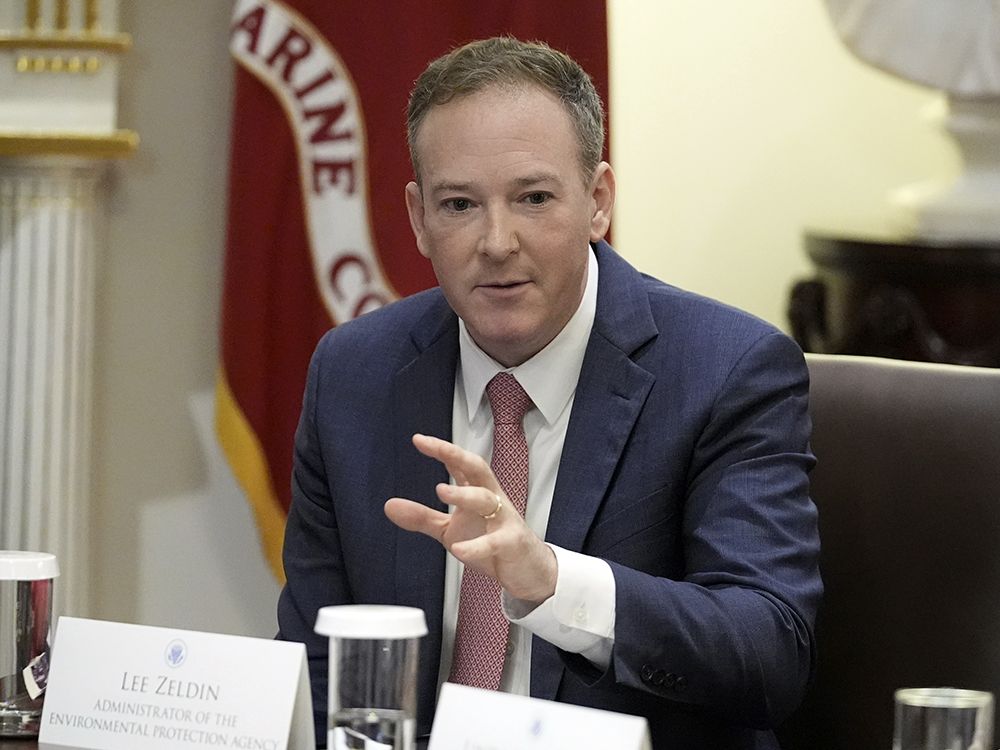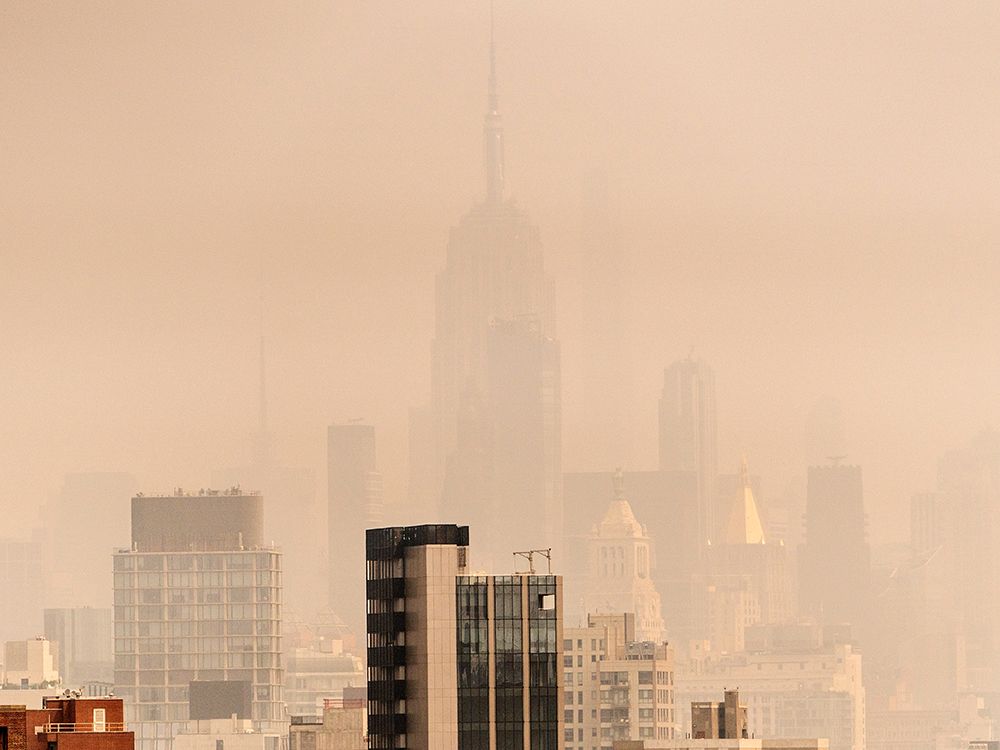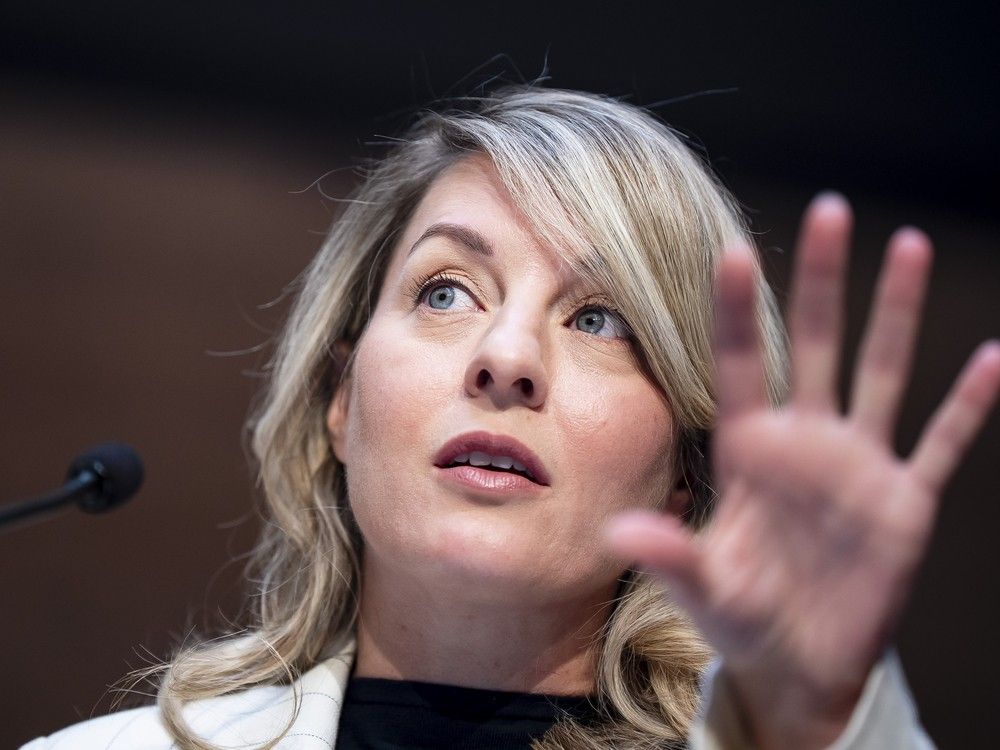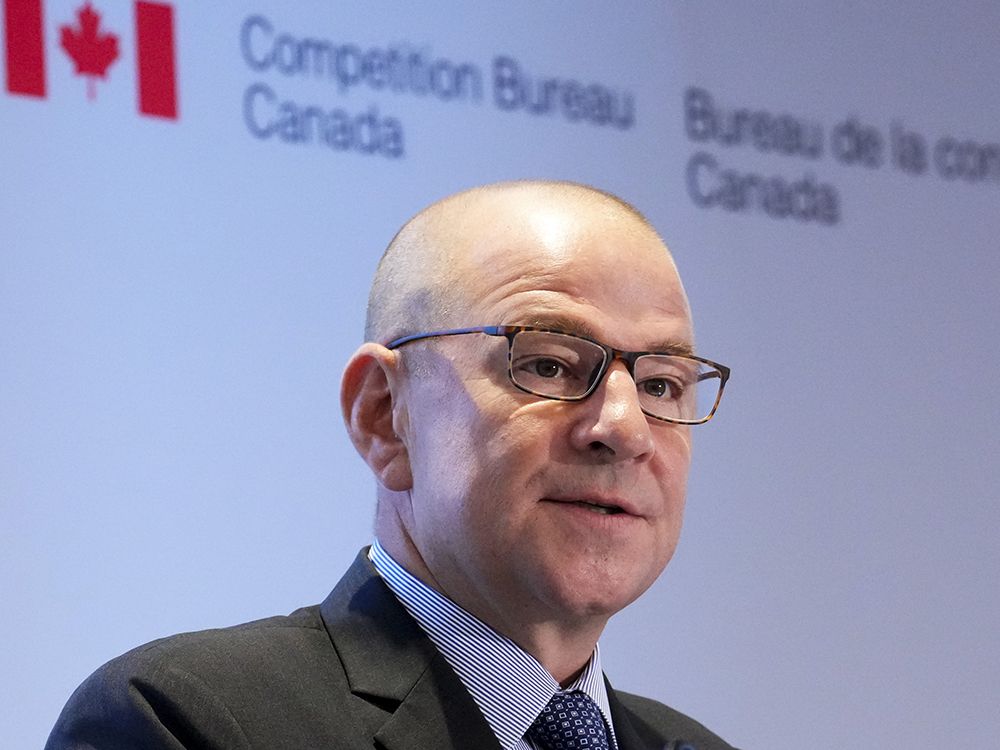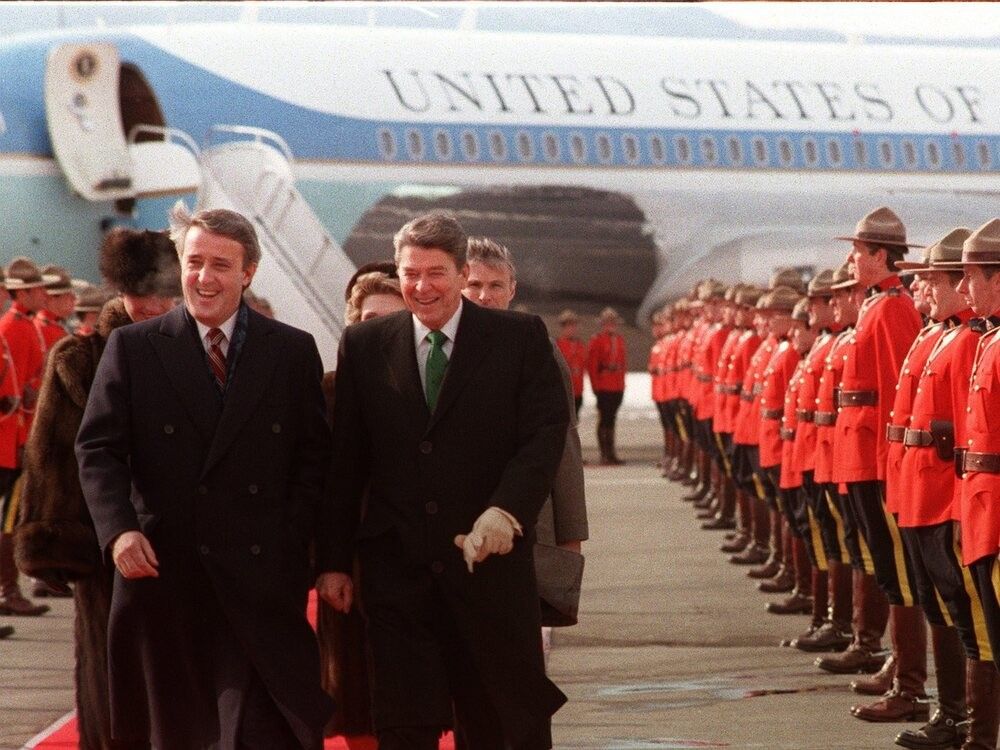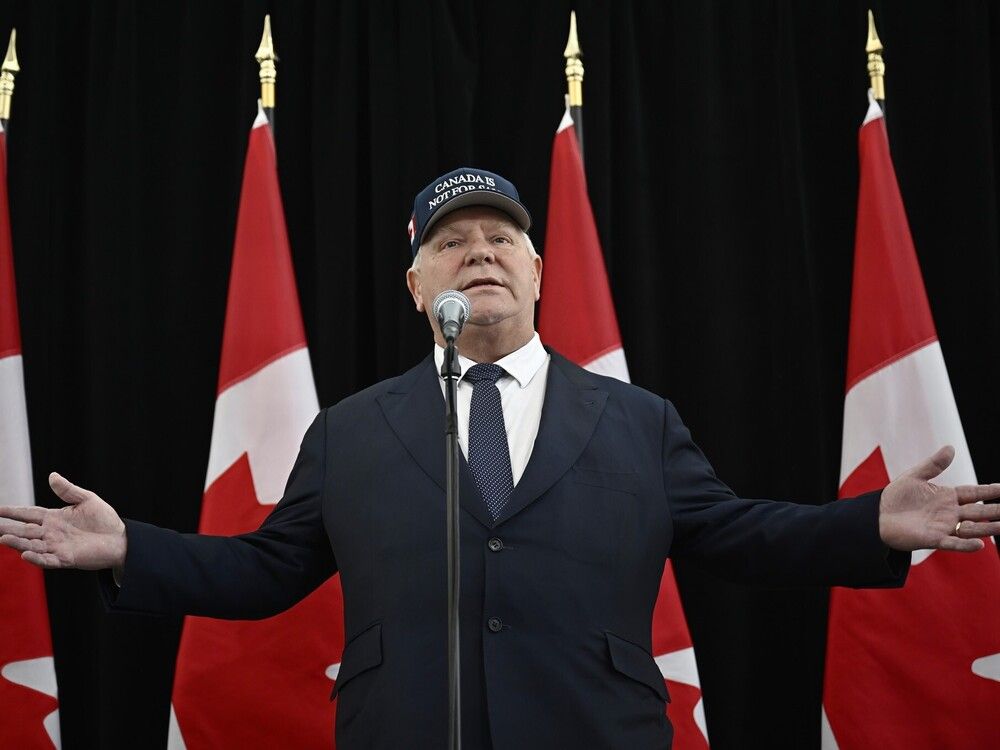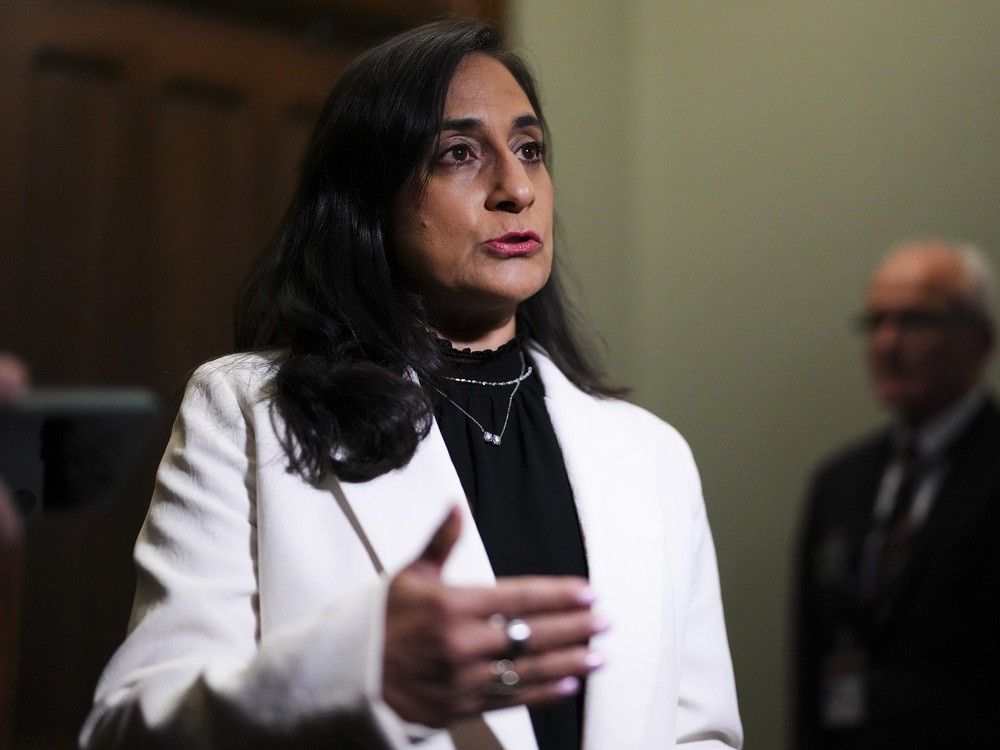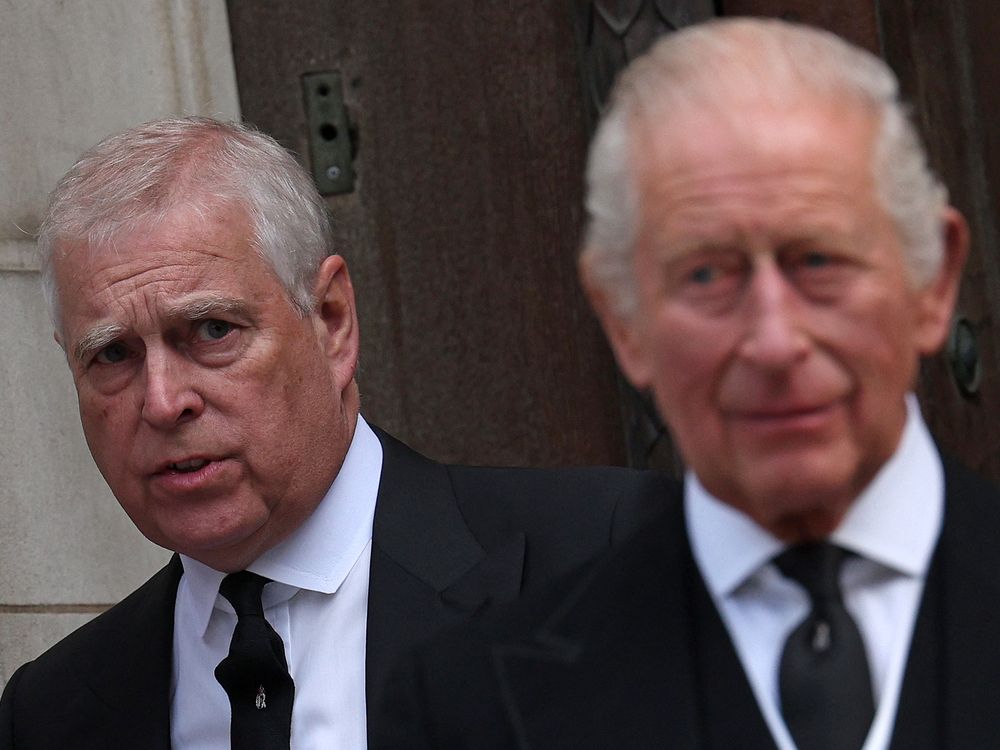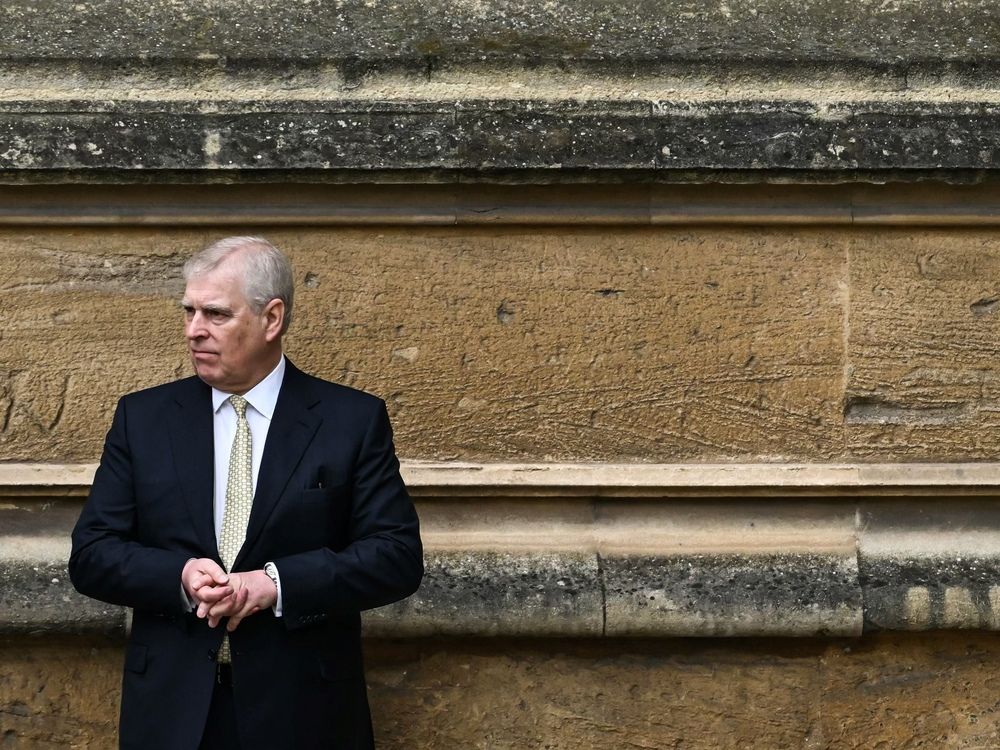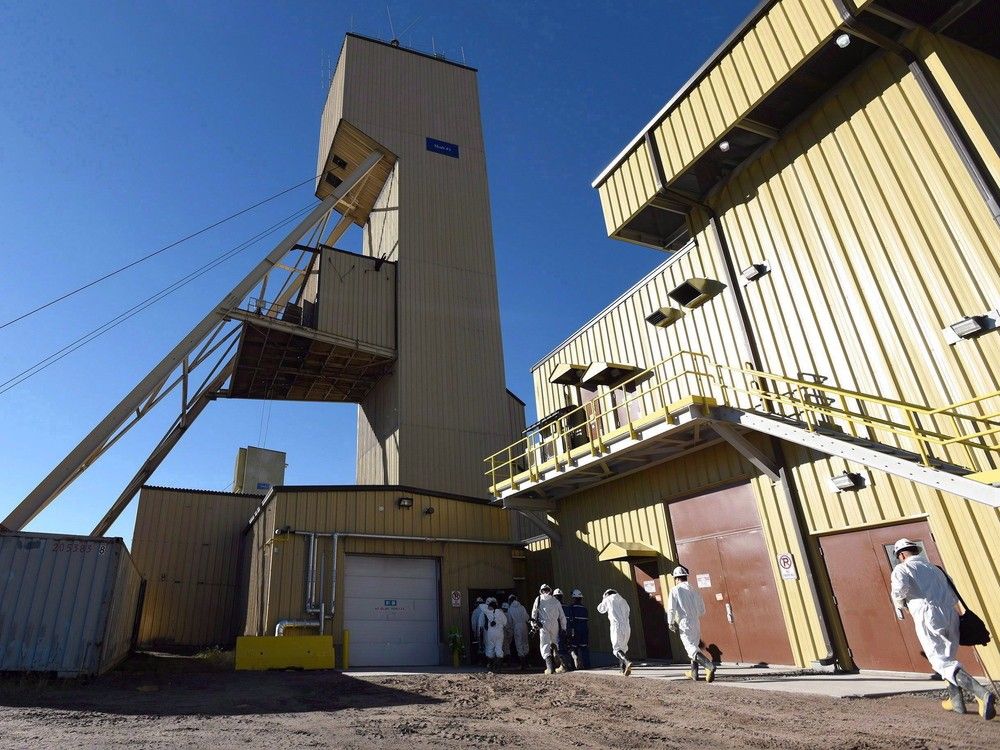
OTTAWA — As someone who has lived in Canada for just a little over three years, Victoria Lavrynenko has an easy baseline for gauging grocery prices.
When she and her family moved to Canada from Ukraine, a package of four chicken breasts was about $10. Now, she says, while scanning the poultry section with her husband and son at a Loblaw affiliate in her Ottawa neighbourhood, the price of that same package of chicken is consistently about 40-50 per cent higher.
Lavrynenko says she tries to kill two birds with one stone by shopping around to get both the best prices and the healthiest food, but that she finds it more difficult now to meet her twin goals because of the inflation in recent years, particularly the basic pocketbook items: gas, clothes, and, most of all, groceries.
“It’s not good, especially when you have kids.”
While she’s far from alone in her frustration about rising prices, Lavrynenko has at least one edge over many Canadians. She gets her groceries in a neighbourhood with at least five full-repertoire grocery stores — Loblaw’s Real Canadian Superstore, Metro, Food Basics (also owned by Metro), Produce Depot, and Farm Boy (owned by Empire, which also owns Sobey’s) — within a range of just over three kilometres, not to mention a number of smaller players that focus on niche markets such as fresh produce, baked goods or ethnic foods.

That level of competition, unlike in thousands of smaller or more remote Canadian communities, should encourage better service, innovative, superior products and, perhaps most of all, lower prices. Yet, although most Canadians live in larger communities, there’s been no shortage of calls in recent years for greater competition and other changes to the grocery industry that might provide some price relief.
According to Canada’s Competition Bureau, those calls are on point. In a 2023 study of the grocery industry, the competition watchdog notes that grocery prices had been rising quickly for a variety of reasons, including Russia’s invasion of Ukraine, supply-chain interruptions and higher input costs. But that industry, while high in both profile and its prominence in the average family budget, is by no means alone or perhaps even the most egregious part of the Canadian economy when it comes to a lack of competition.
Canadians are understandably upset at U.S. President Donald Trump’s protectionist tariffs that contravene the free trade agreement that he signed just a few years ago, and his decision last week to cut off trade talks over an in-your-face Ontario government ad. But competition advocates say there are still plenty of made-in-Canada protectionist barriers that stifle competition at the expense of consumers, small business and the broader domestic economy.
The issue may not be sexy but that doesn’t mean the stakes aren’t high. The Competition Bureau says increased competition could spur economic growth, adding as much as 2.5 per cent to Canada’s gross domestic product (GDP) over a decade.
Prime Minister Mark Carney, meanwhile, said last week in a pre-budget speech that it’s the perfect time for “bold steps.” With a federal budget set to be unveiled within just days, the question remains: Will Ottawa take the necessary steps to boost competition?
The competition problems in Canada are wider spread that most Canadians might think.
Beyond the grocery sector, many economists and competition analysts point to problem industries that directly affect Canadian wallets, such as airlines, telecommunications services and banking, all of which are protected to some degree from foreign competition by legislation. There are also a range of professions that are protected by largely unknown barriers, and “hidden” industries that play only into supply chains but affect consumers and the economy nevertheless. And then there’s the American giants, more difficult to influence, that dominate critical technological sectors, such as phones (Apple), streaming services (Netflix), social media (Facebook), online retail (Amazon) and search (Alphabet’s Google).
In total, our domestic economy remains littered with oligopolies and other uncompetitive industries that may not be serving customers as well as they should.
“Where there is limited competition, incumbent businesses make the rules,” Matthew Boswell, commissioner of the Competition Bureau, said last month.
Non-competitive markets and their non-competitive prices also affect industries that otherwise would be competitive. Tim Sargent, head of domestic policy at the Macdonald-Laurier Institute think tank, said airlines, telecoms and banking are “infrastructure industries” because many other industries are their customers. That means, Sargent said, that increasing the infrastructure industries’ productivity would also make many other sectors more competitive.
But economists and competition advocates emphasize that increasing competition is about a lot more than saving a few cents on a box of pizza pops or even taking a slice out of cell phone bills.
Without a doubt, competition should mean better prices, but there are other benefits, too.
Competitive markets mean that consumers are more likely to get better services, such as convenient hours, and gain access to new innovations and ideas that are often unnecessary in markets where dominant players don’t feel the need to take chances, or to work hard at keeping or attracting customers. Innovation, whether a minor efficiency in a small business or the creation of the next gadget with mass appeal, is seen as a critical element in a thriving economy. It’s also viewed as one of the key factors that separates fast-growing economies from laggards.

Advocates say that the lack of competition in some parts of the Canadian economy means that we’re leaving piles of money on the table, unnecessarily higher prices, and economic growth that will never be realized. In a recent study of competition in the Canadian economy over the first two decades of this century, the Competition Bureau says the gains are potentially high and that the number of concentrated industries is growing, while those industries that were already concentrated are becoming more so.
“We’ve been getting worse over time,” Boswell told National Post in a recent interview.
While difficult to quantify the effects of one element such as competition in a complicated equation such as a national economy, there’s little doubt that the benefits could be significant.
Boswell and others cite the Australian example from about a generation ago to make their point. Aiming for more dynamism and economic growth, Australia launched a set of reforms called the National Competition Policy between 1995 and 2005. Those changes extended competition law to all professions and sectors, including utilities and others dominated by public sector organizations. The plan included an agreement from all levels of government to review their laws and regulations to remove unjustified barriers to competition.
The result, said Boswell, was GDP growth of about 2.5 per cent over a decade.
Ryan Manucha, a research fellow at the C.D. Howe Institute think tank and the author of a book on interprovincial free trade, said Boswell’s estimate is backed up by academic studies on the effects of greater competition.
“Those kinds of numbers are absolutely on the table.”
The possibility of that type of economic growth would come at an ideal time. The head winds facing the sluggish Canadian economy go beyond the Trump tariffs. There are also painful trade frictions with China, a lack of infrastructure for diversifying trade to non-American markets and a slowing global economy that mean fewer customers and smaller orders.
No wonder that the Carney government is desperately trying to find new ways to squeeze growth through new trade partners, fewer protectionist barriers among provinces, efforts to spur housing construction, lower taxes, and new infrastructure.
That new infrastructure, the railways, ports and perhaps pipelines that comprise Ottawa’s so-called “big projects,” could be added to the list of the affected if electricians, welders and other skilled trades are in short supply and prevented by protectionist barriers from crossing provincial borders to work.
So, with a federal budget just around the corner, will Ottawa do anything to increase competition?
Industry Minister Mélanie Joly, whose portfolio includes the Competition Bureau, says the Liberal government is “hawkish” on greater competition.
At a recent speech at a competition summit in Ottawa, she said that emphasis is part of the government’s plan to boost affordability. “Competition is another way we are lowering prices,” she said. “It keeps prices fair, it drives innovation.”
Joly was not available to comment for this article but said in her Ottawa speech that the government has already taken steps to increase competition in the telecommunications services and housing industries, and has also made reducing interprovincial trade barriers a priority.
Manucha agreed that Canada has taken some early steps but emphasized that there’s still a steep hill to climb.
Making that climb, however, will be easier said than done.
A lack of competition in some markets is buttressed by barriers that are difficult to topple.
In a review of the grocery sector, for example, the Competition Bureau noted that the industry in Canada is concentrated. But the Bureau also pointed out that one of the reasons for the concentration of the market is that it’s difficult to break into and remain competitive for a variety of logistical reasons and that the longer-term trend of higher profit margins pre-dates the pandemic.
Greater competition in the telecommunications services sector could be a boon for Canadian customers, but that was one of Ottawa’s top priorities for almost a decade during the Harper years. Foreign competitors were courted, occasionally came and mostly went, sometimes complaining that Canadian regulators and legislators weren’t serious enough about encouraging competition.
To this day, despite recent drops in prices, the market remains an oligopoly that lacks a big-time foreign player and Canadians continue to pay some of the highest cell phone bills in the world.
In other markets, some Canadians might be unhappy with some of the consequences that could accompany greater competition.
Greater competition in the airline industry, for example, might indeed lower prices. Boswell cited a recent Bureau study that found that airfares dropped by an average of 9 per cent when a single new competitor begins flying between two cities.
But there could be unintended consequences as well. If a new competitor happens to be a foreign player, it would mean Canadian airlines would likely have a smaller share of the domestic market, which could lead to layoffs at Canadian airlines. Air Canada, the country’s flagship air carrier, is already struggling following a recent flight attendants’ strike and announced hundreds of managerial layoffs on Friday. If Canadian airlines were forced to compete more in their backyard with American rivals, would Ottawa not be forced to level the playing field, such as rescinding legislation that forces Air Canada to be based in Montreal? The former crown corporation has other unique obligations too, such as maintaining a bilingual work environment, that don’t affect their competitors.
A new, large domestic airline, meanwhile, would be welcomed by many but is unlikely. It was only 25 years ago that Air Canada acquired its struggling domestic rival, Canadian Airlines.
But from the point of view of consumers, small businesses, and the broader economy, it’s unlikely that increased competition could affect any sector more than in banking. The industry is dominated by six large players who collectively posted profits of an incredible $51.3 billion in 2024, yet service fees and deposit requirements seem only to head in one direction, while small businesses and consumers continue to report on the difficulty of getting loans.

In a September 2024 review of the industry, the Bureau found “many of our financial services markets are highly concentrated.”
Many professions, meanwhile, operate quietly in surprisingly non-competitive markets. In a 2007 study, the Bureau studied five groups of largely self-regulated professions: accountants, lawyers, optometrists, pharmacists, and real-estate agents. The study found that these self-governing powers often raised conflicts that only add to the need for greater competition. Not surprisingly, the professions, which comprised as much as 20 per cent of Canada’s service economy, comprise one of the least productive sectors, the study found.
While the market for real-estate agent services has since opened to greater competition, many professions remain shielded – and perhaps suppressed — by restrictions from working in other provinces, advertising, pricing, and even competing against others in their own professions. In many cases, these restrictions are imposed by provincial colleges and other self-regulating bodies that are responsible for much of their own professions’ governance, despite having incentives to restrict new entrants that would mean greater competition for their members. Perhaps ironically, Ottawa’s plans for big construction projects such as ports and rail – largely supported by the provinces — could be hampered if interprovincial barriers mean that these projects don’t have enough electricians, welders and other skilled tradespeople.
While Trump has put trade barriers on the front pages for much of this year, Canada’s domestic trade barriers can be traced back to pre-Confederation.
Historically, Canada got into the habit of erecting trade barriers as a way of protecting domestic producers from being crushed by usually larger American competition. Before long, policies to protect or subsidize “national champions” became conventional wisdom, leading to institutionalized monopolies or duopolies such as Air Canada or Bell Canada. These companies weren’t necessarily efficient or as consumer friendly as they could be, but they sustained home-grown Canadian players that were often legislated to provide services to communities or populations that open markets might otherwise ignore.
So where to from here?
With the Liberal government insisting it’s a big fan of competition, Boswell has in recent months been calling for a “whole-of-government” approach to addressing regulations, standards, licensing and other provincial and municipal rules that limit competition. Some advocates would like to see Ottawa give the Bureau greater powers so that it could tackle some of the problems, including the thorny question of interprovincial barriers.
Saskatchewan Senator Marty Klyne introduced a new bill Thursday designed to improve internal trade in Canada by empowering the Bureau to make recommendations to reduce barriers to internal trade, such as anti-competitive regulations. Through changes to the Competition Act, the Canadian Prosperity Act would require Ottawa and “encourage” provinces to respond to the Bureau’s recommendations on reducing barriers to internal trade.
But many of the changes need to be at the sector level, advocates argue.
In the grocery industry, for example, a Competition Bureau study recommends that governments offer financial incentives for new entrants, particularly independent and foreign players, limit or ban any restrictions on where rival grocers can operate and clearer pricing so that it’s easier for consumers to compare rival products.
In banking and financial services, the Bureau recommends that governments take steps to address customers’ “stickiness” or reluctance to move to another company. The focus should be on lowering switching costs, such as eliminating the costly “stress test” that often accompanies a customer’s desire to switch mortgage providers.
And when it comes to professions that are largely self-governed, provincial governments have the power to change those dynamics, at a minimum forcing those bodies to apply a competitive lens to their rules and practices.
Provinces could also go a long way to eliminate the interprovincial trade barriers that have hampered the economy for decades. Earlier this year, Ottawa removed all federal exceptions to domestic free trade, but most of the barriers are controlled by provinces and territories that remain reluctant to open their protected industries to new rivals, or risk losing sales and skills.
While interprovincial trade matters are a constitutional hornets’ nest, Ottawa is largely responsible for governing the movement of goods and people between two or more provinces. That means the federal government has the authority, if not the political will, to rule on interprovincial trade and override many of the country’s domestic trade barriers. Instead, Ottawa has traditionally relied on federal-provincial or bilateral provincial agreements as the preferred options for encouraging freer trade within Canada.
It’s been an issue for decades.
The 1995 Agreement on Internal Trade was the first significant effort to reduce those barriers, but it had minimal effect because it included too many exemptions and not enough enforcement. That agreement was updated in 2017 with the Canada Free Trade Agreement, which included a dispute resolution mechanism. But that deal was also plagued by exemptions on everything from alcohol to trucking to legal professions and still lacked enforcement.
Unlike Canada’s efforts at reducing domestic trade barriers that have always relied on voluntary action from provincial, territorial and municipal governments, the Australian plan included binding commitments and a National Competition Council that represented independent authority.
Manucha said Canada has taken some early steps, but there’s much more to do to make our markets competitive and fair for consumers. “Competition is a massive problem in this country.”
Canadians will find out Nov. 4 — when the federal budget is unveiled — if we’re poised to take further steps, or to continue to pay the price for our uncompetitive markets.
National Post
Our website is the place for the latest breaking news, exclusive scoops, longreads and provocative commentary. Please bookmark nationalpost.com and sign up for our daily newsletter, Posted, here.






